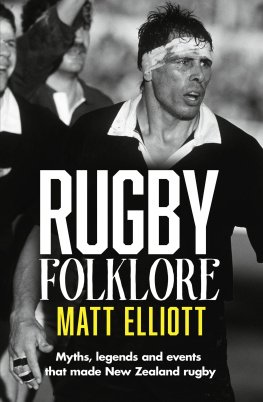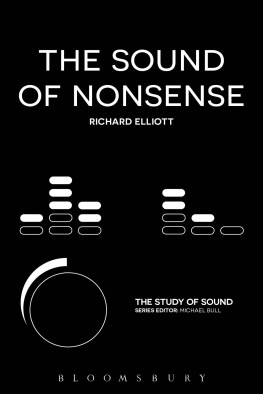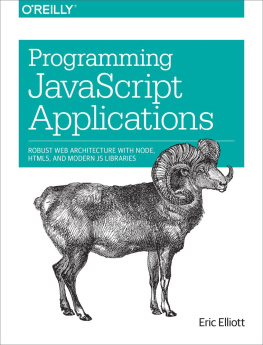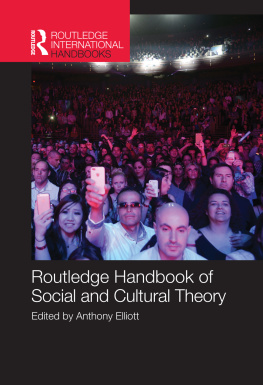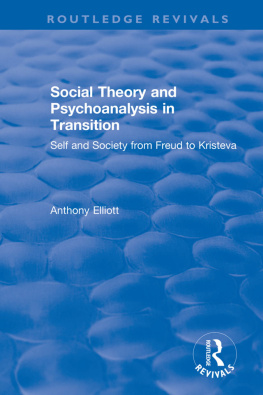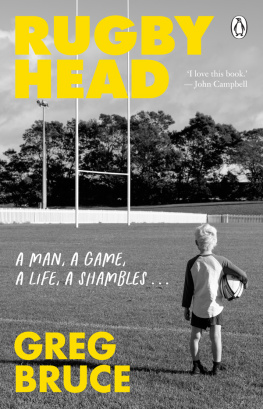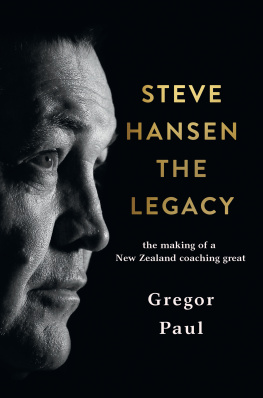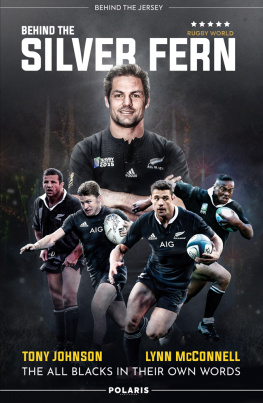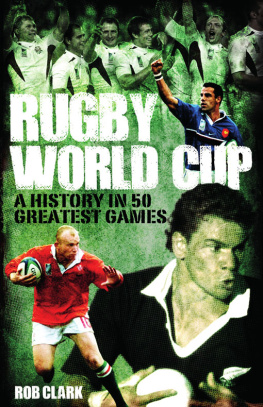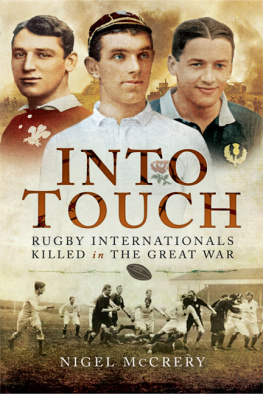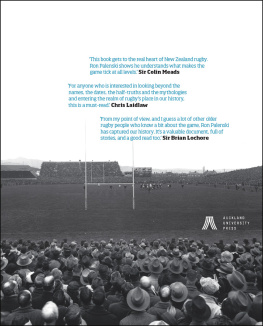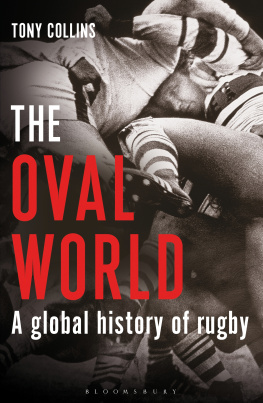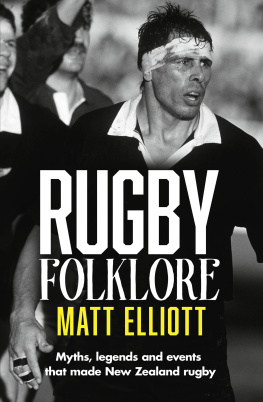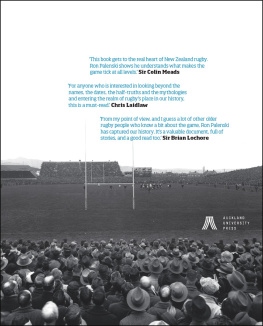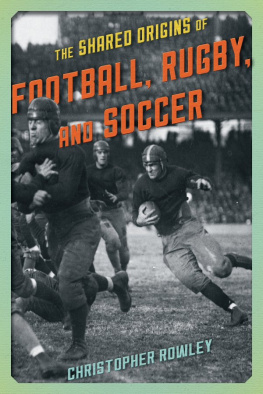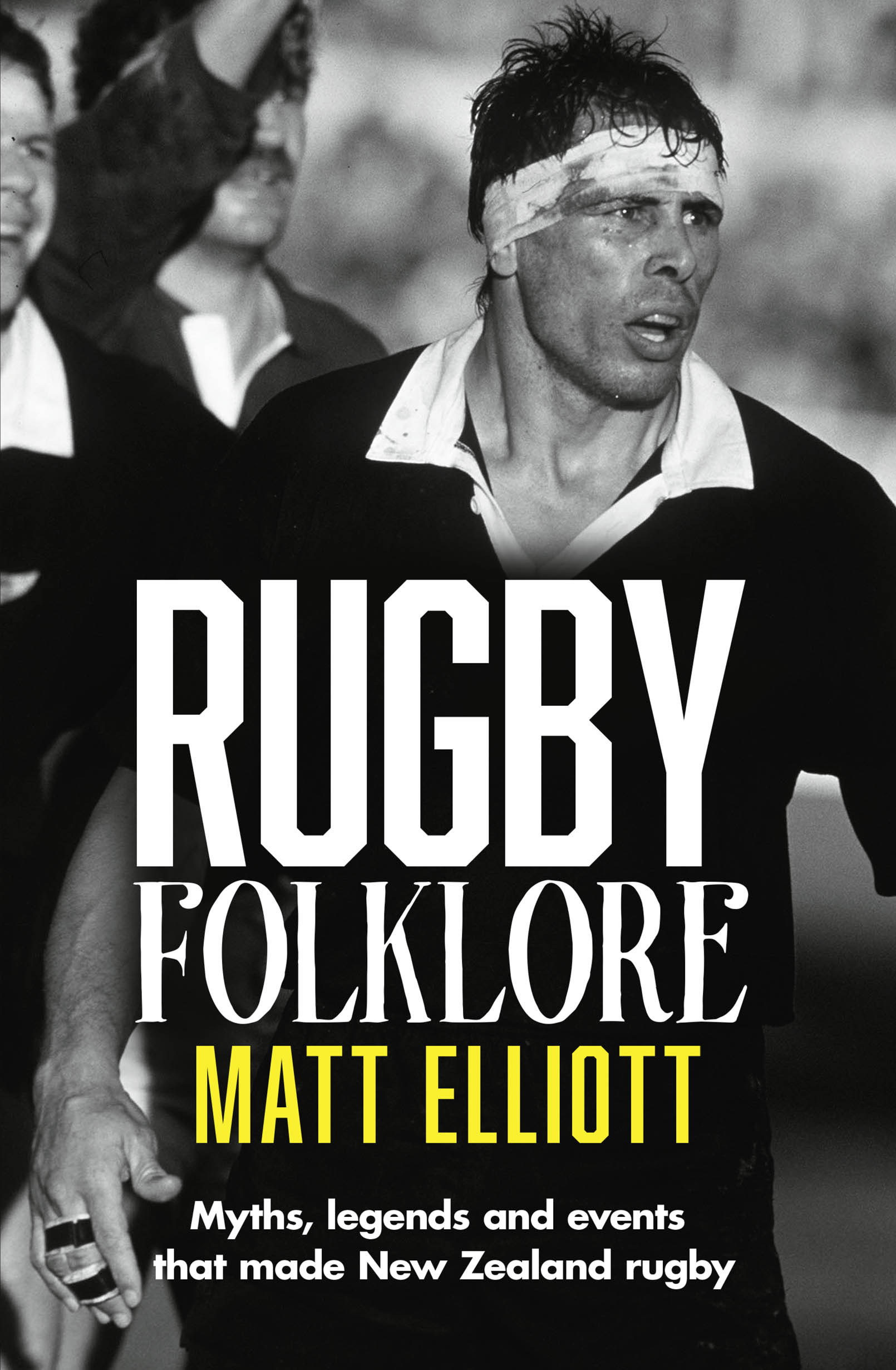CONTENTS
Guide
Dedicated to Uncle Michael (President D.M.A.S.)
CONTENTS
In New Zealand, we have played, celebrated and commemorated the game of rugby like no other country. Men took to the game in extraordinary numbers in the late 1800s, with hundreds of clubs being formed around the country. It was a game that could be played by those of all physiques the stout bloke, the beanpole, the sprinting whippet, the mischievous little fella and all occupations. Rugby has been called our game, and for decades, rightly or wrongly, has dominated the national landscape.
The game has a verbal history. Tales of deeds on the football field have always been shared, from the well-publicised moments of All Black brilliance, through to the achievements of provincial teams, the fables from close-knit club sides and even family stories associated with the game.
In my own family there is a story about my grandfather, James (Jim) Ford, who was watching a game from the bank at the old Athletic Park in Wellington. A cold wind was howling in from Cook Strait, and rain was lashing the ground. Jim had a hipflask inside his coat, and he and his cousin were sharing warming nips of whisky poured into the lid of the flask. A bloke in front of Jim turned around and said, Ill give you a shilling for a nip.
Fair enough, said Jim.
He poured the nip and the bloke said, I wouldnt mind a bit of water with it.
Jim tilted his head and a trickle of rain ran off his hat and into the nip of whisky, greatly amusing all around him.
Jim was once sent off in a club match, but the referee cant have viewed his indiscretion with long-lasting disdain. He later let his daughter marry Jim.
On the other side of our family, a great-uncle, Ted Searle, was a member of the Southern rugby club in Te Kopuru. Having been sent off in a game for robustly questioning the referees knowledge of the rules, he was subsequently banned from even entering the club gates. (The referee was a local stock agent and frequent visitor to the Searle farm.) To watch a match, Ted had to sit on his horse outside the ground with his son, Ken, on the horse, too. However, when the club was in need of funds from its members, the ban was suddenly forgotten and Ted was welcomed into the fold again.
Stories such as these were our family folklore.
*
As a boy, I began to create my own rugby history stories. In my first year of Intermediate, I won a class speech competition using the All Black career of Bryan Williams as my topic.
Then, a year later, on the bus home from school one day, I had tucked under my arm my prized adidas All Black ball. (Recently bought for about $30 from a sports store in Aucklands Queen Street, having saved and saved for it.) I sat down next to an old man near the rear of the bus. He asked, with a slight English accent, if he could see the ball, and when I handed it to him he rolled it around in his big, leathery hands.
As we talked, he said, Did you ever hear of George Nepia?
Yes, I replied. My grandfather has told me what a great player he was.
He was the best player Ive ever seen, said the elderly gent.
Did you play? I asked.
I did, but then I went and played league in England. I played against George over there. He had, he said, only recently returned to New Zealand.
I often wonder just who that man was.
A childhood friend of mine bought, at my request and payment, a duty-free transistor radio when on a trip overseas. It was a prized possession, for listening to cricket while sitting on the back lawn in summer or to rugby in my room on wintry afternoons.
I remember, a few years later, rushing out of St Patricks Cathedral in Auckland after Sunday Mass to sit in our big Holden Kingswood and listen on the car radio to the remaining minutes of the All Blacks 2121 draw with Argentina in Buenos Aires. The radio commentary seemed to come in on the wind, the volume and clarity fading and increasing every few minutes. The only constant was the buzz of the crowd and the hooting of horns in Ferrocarril Stadium. It was a nervous listen as Hugo Porta fired off drop-kick after drop-kick to try to win the game. Porta, with his three dropped goals and four penalties, had the highest tally for any player against New Zealand, but the question had to be asked: had his addiction to kicking kept Argentina or New Zealand in the game?
My school rugby team was, at the last minute, drafted in to be part of the opening ceremony at Eden Park for the 1987 Rugby World Cup. We were given little flags to (self-consciously) wave while standing on the field, as All Black legends Waka Nathan and Don Clarke wandered out and waved to the crowd. On the day, I think Don Clarke pulled a hamstring. The great Waka Nathan stood near us and said, Alright, boys. We were then able to watch the game from the North Stand. As a couple of photographs I took at the time attest, there werent many people at the ground for a game in which for the first time the All Blacks scored more than 50 points in a test, brought up by John Kirwans great length-of-the-field try.
There was another, darker side to the game, too: what contact with apartheid-era South Africa did to New Zealand society. I well remember going with my father on No Tour marches up Aucklands Queen Street. Exhilarating and nerve-racking!
Rugby, which for many years was always printed with a capital R, was very much part of the oxygen I breathed when growing up. Thousands upon thousands of New Zealanders have their own individual stories from their youth of little moments that contributed to their lifelong interest in the game.
*
There is also the material culture around the game, from the match-day programmes to cereal and cigarette cards of All Blacks, songs lauding or lampooning the game and its players, cartoons, official fan-wear, books, tickets, autographs, and so on. This is all part of the story of the game in New Zealand and how the game is celebrated off the field.
On a bookshelf at home I have a copy of The New Zealand Rugby Football Union 18921967 by A. C. Swan. It was given to me when I was about 10 years old by Ima Batty, one of two elderly sisters we would see every Sunday morning at Mass.
Imas husband had recently passed away. A kindly, quiet, broad-shouldered man whose face I can recall to this day, his name was Walter Batty. Tongan-born, he had played for the All Blacks from 1928 to 1931, and was famously photographed in the front row for the last match in which the All Blacks used the 2-3-2 scrum. He played for Auckland for a decade, and was awarded the Distinguished Conduct Medal during World War II. Walters name is written in the front of the book. It was one of the first items in my All Black ephemera collection (which my wife refers to as all that stuff).
*
Sport, and in this case rugby, provides the unexpected. It surprises. Leaves us bewildered. Stunned. Depressed. Ecstatic. Such moments remain in ones memory and cement themselves in the collective conscience as folklore, that ongoing conversation made up of the verbal and the material.
The following miscellany looks at aspects of the wonderful, confusing, famous or infamous, infuriating and exhilarating game of rugby football in this country, over more than a century. It shows how much has changed, both on and off the field, but how our love for the game and its players has (generally) remained strong.
Always play with the wind in the first half. Get points on the board. The wind might die away.
Always take the wind in the second half. It takes a while for teams to settle into the game and get points.
Fergie McCormick (All Blacks career: 196571) would always put on his right boot the kicking foot first, as did Ian Jones (198999) and Beauden Barrett (2012).
Next page
